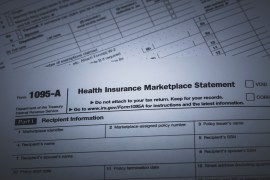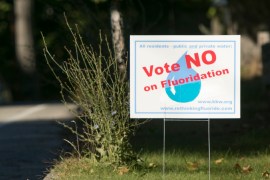Florida Gov. Rick Scott said Friday that he’s open to building a state-based health insurance exchange under the health care law — but only if he can find a way to pay for it that doesn’t increase health costs or state taxes.
Scott, the former hospital chain CEO who has been one of the most vocal Republican critics of the law, said he also would be open to expanding Medicaid as called for in the law — but the federal government first has to approve his request to require virtually all beneficiaries to get coverage under a private managed care plan. The Centers for Medicare & Medicaid Services has yet to rule on the request submitted in 2011.
Scott, who was in Washington, D.C., to talk to the conservative Federalist Society, said he wants to meet with Health and Human Services Secretary Kathleen Sebelius “to see if we can find common ground.”
“I want to sit down and see if there is a way to do an exchange that reduced the cost of health care and improve access for the quality of health care, then I would be interested in doing it,” he said.
He sent Seblius a letter today on the matter.
Under the federal health overhaul, states have the option starting in 2014 to expand Medicaid, the state-federal health insurance program for the poor. In Florida, which has the nation’s third highest rate of residents without coverage, more than 1.5 million people would gain insurance if the state expanded eligibility.
The federal government would pay all of the costs for the first three years, although that would eventually be reduced to 90 percent. Republicans have repeatedly said that Florida cannot afford those costs.
Responding to Republican governors’ concerns, Sebelius Thursday gave states an extra month –until Dec. 14– to decide whether to build a state exchange, which is an online market where individuals and small businesses can shop for coverage and find out if they qualify for federal subsidies or coverage under Medicaid. If states don’t act, the federal government will operate the exchange and set the rules that determine which health plans can participate and what benefits will be available to consumers.
Scott said he’s worried a state exchange would lead to higher health costs or force his state to raise taxes. Florida has been building its own online health insurance exchange, authorized by the state legislature in 2008, and it is set to open next year. That exchange, called Florida Health Choices, will initially serve small businesses and will not offer subsidies to defray the cost of coverage or require that a certain package of benefits be covered. The Florida exchange received a onetime $1.5 million state grant, funded largely through a 2.5 percent tax on premiums sold in the exchange, according to Executive Director Rose Naff. Some state lawmakers want to make that exchange comply with the health law.
Many of the 17 states that have agreed to build state-based exchanges are expected to use a similar premium tax that insurers would pass on to policyholders. Naff said states also can fund their exchanges from state dollars, fees charged to insurance agents, or advertising on the exchange Web site.
Scott said a state exchange would cost at least $90 million a year based on what he said Illinois determined. He added that Florida is a larger state. “My concern is the exchange is not going to reduce costs,” he said.
Before President Barack Obama’s re-election last week, Scott was adamant that the state would do nothing to implement the health law that was not required. Florida led the legal fight among 27 states to get the law overturned. But in June, the Supreme Court upheld most of the law including the requirement that most citizens have health insurance.
KFF Health News is a national newsroom that produces in-depth journalism about health issues and is one of the core operating programs at KFF—an independent source of health policy research, polling, and journalism. Learn more about KFF.Some elements may be removed from this article due to republishing restrictions. If you have questions about available photos or other content, please contact khnweb@kff.org.



